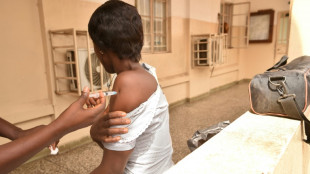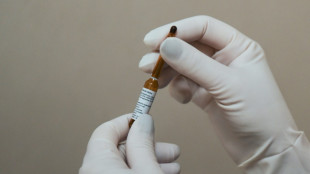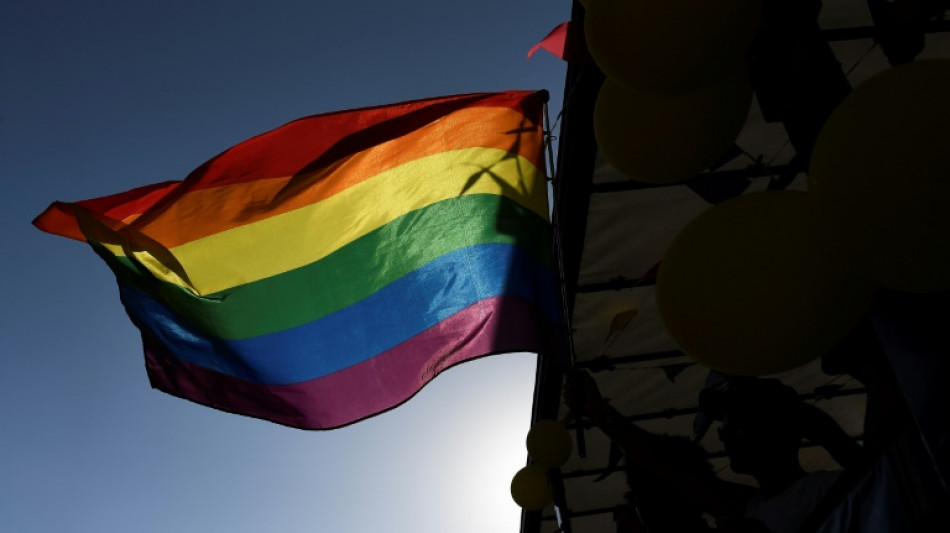
-
 UK comedian Russell Brand charged with rape
UK comedian Russell Brand charged with rape
-
Marsh, Markram help Lucknow edge Mumbai in IPL

-
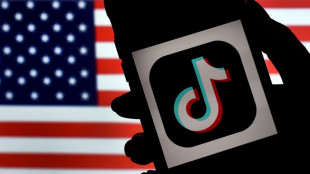 Trump gives TikTok extra 75 days to find buyer
Trump gives TikTok extra 75 days to find buyer
-
Israel attorney general accuses PM of 'conflict of interest' in security chief dismissal

-
 Emery glad to see Rashford make landmark appearance
Emery glad to see Rashford make landmark appearance
-
Sean 'Diddy' Combs faces more charges ahead of criminal trial
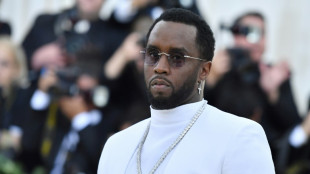
-
 Russian missile strike kills 14 in Ukraine leader's home city
Russian missile strike kills 14 in Ukraine leader's home city
-
Trump's tariff Big Bang puts global economy under threat

-
 I Am Maximus backed for National as Mullins hot streak continues
I Am Maximus backed for National as Mullins hot streak continues
-
2014 World Cup winner Hummels to retire at season's end

-
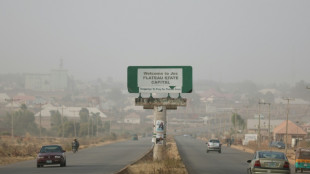 Intercommunal violence kills dozens in central Nigeria
Intercommunal violence kills dozens in central Nigeria
-
Nigerian, S. African music saw 'extraordinary growth' in 2024: Spotify

-
 Russell Brand: From Hollywood star to rape suspect
Russell Brand: From Hollywood star to rape suspect
-
France soccer star Mbappe unveiled in London... in waxwork form

-
 Trump goads China as global trade war escalates
Trump goads China as global trade war escalates
-
Israel expands Gaza ground offensive, hits Hamas in Lebanon

-
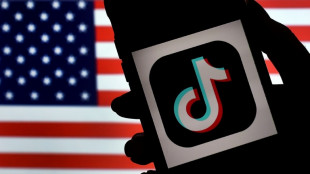 TikTok faces new US deadline to ditch Chinese owner
TikTok faces new US deadline to ditch Chinese owner
-
US Fed Chair warns tariffs will likely raise inflation, cool growth
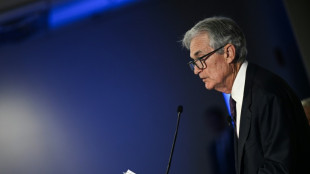
-
 Mbappe among three Real Madrid players fined for 'indecent conduct'
Mbappe among three Real Madrid players fined for 'indecent conduct'
-
How can the EU respond to Trump tariffs?

-
 Canada loses jobs for first time in 3 years as US tariffs bite
Canada loses jobs for first time in 3 years as US tariffs bite
-
Real Madrid and Barcelona respect each other, says Ancelotti

-
 Nations divided ahead of decisive week for shipping emissions
Nations divided ahead of decisive week for shipping emissions
-
Trump goads China after Beijing retaliates in global trade war

-
 Arteta urges Arsenal to enjoy "beautiful" run-in despite injury woes
Arteta urges Arsenal to enjoy "beautiful" run-in despite injury woes
-
London mayor gets new powers to revive capital's ailing nightlife

-
 Italy's ski star Brignone takes on 'new challenge' after serious leg injury
Italy's ski star Brignone takes on 'new challenge' after serious leg injury
-
Amorim in a 'rush' to succeed at Man Utd

-
 PSG coach Luis Enrique targets unbeaten season
PSG coach Luis Enrique targets unbeaten season
-
Duterte victims seeking 'truth and justice': lawyer

-
 US job growth strong in March but Trump tariff impact still to come
US job growth strong in March but Trump tariff impact still to come
-
UK comedian and actor Russell Brand charged with rape

-
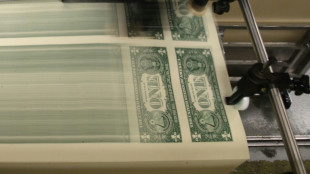 Stocks, oil slump as China retaliates and Trump digs in heels
Stocks, oil slump as China retaliates and Trump digs in heels
-
Postecoglou 'falling out of love' with football due to VAR

-
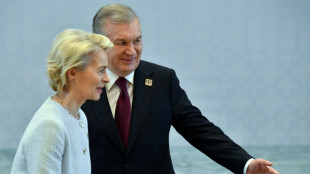 EU hails 'new era' in relations with Central Asia
EU hails 'new era' in relations with Central Asia
-
US hiring beats expectations in March as tariff uncertainty brews

-
 'Unique' De Bruyne one of the greats, says Guardiola
'Unique' De Bruyne one of the greats, says Guardiola
-
Automakers shift gears after Trump tariffs

-
 Where things stand in the US-China trade war
Where things stand in the US-China trade war
-
De Bruyne to leave Man City at end of the season

-
 Youthful Matildas provide spark in friendly win over South Korea
Youthful Matildas provide spark in friendly win over South Korea
-
Stocks, oil extend rout as China retaliates over Trump tariffs
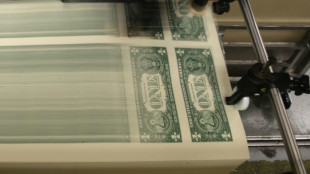
-
 De Bruyne says he will leave Man City at end of season
De Bruyne says he will leave Man City at end of season
-
UK spy agency MI5 reveals fruity secrets in new show

-
 Leverkusen's Wirtz to return 'next week', says Alonso
Leverkusen's Wirtz to return 'next week', says Alonso
-
England bowler Stone to miss most of India Test series

-
 Taiwan earmarks $2.7 bn to help industries hit by US tariffs
Taiwan earmarks $2.7 bn to help industries hit by US tariffs
-
Rat earns world record for sniffing landmines in Cambodia
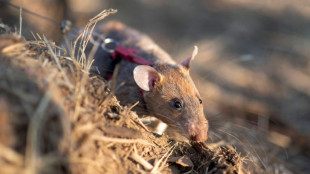
-
 Elton John says new album 'freshest' since 1970s
Elton John says new album 'freshest' since 1970s
-
EU announces 'new era' in relations with Central Asia
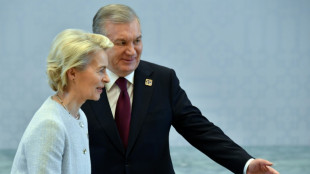
| RBGPF | 1.48% | 69.02 | $ | |
| CMSD | 0.44% | 22.77 | $ | |
| AZN | -7.68% | 68.65 | $ | |
| SCS | -2.29% | 10.5 | $ | |
| RIO | -7.53% | 54.34 | $ | |
| CMSC | 0.36% | 22.34 | $ | |
| GSK | -7.2% | 36.39 | $ | |
| BTI | -4.89% | 39.965 | $ | |
| NGG | -5.39% | 65.84 | $ | |
| RYCEF | -15.98% | 8.45 | $ | |
| BCC | -0.17% | 94.465 | $ | |
| BCE | 1.13% | 22.92 | $ | |
| RELX | -5.58% | 48.72 | $ | |
| JRI | -7.28% | 11.95 | $ | |
| VOD | -10.82% | 8.455 | $ | |
| BP | -10.14% | 28.455 | $ |

Scientists discover genetic underpinnings of bisexuality
For the first time, scientists have identified genetic variations associated with human bisexual behavior -- and found these markers are linked to risk-taking and having more offspring when they are carried by heterosexual men.
Jianzhi "George" Zhang, a professor at the University of Michigan and senior author of the new research, told AFP it helped answer the long-standing evolutionary puzzle of why natural selection has not eliminated the genetics underpinning attraction within the same sex.
The study, published Wednesday in Science Advances, was based on data from more than 450,000 people of European descent who signed up for the UK Biobank, a long-term genomics project that has proven a major boon for health research.
It builds on growing research including a seminal 2019 paper in Science that found genetic variants influenced to some extent whether a person engaged in same-sex behavior, though environmental factors were more important.
"We realized that in the past, people lumped together all homosexual behavior...but actually there's a spectrum," Zhang said, explaining part of the motivation for the new work.
By studying participants' complete sets of DNA, or genomes, and combining that information with survey responses, Zhang and his co-author Siliang Song were able to confirm the signatures associated with same-sex behavior and bisexual behavior were in fact distinct.
- 'Nature is complicated' -
This meant they could be analyzed separately -- which in turn revealed that male heterosexuals carrying the markers, which they called bisexual behavior (BSB)-associated alleles, father more children than average and thus carry those genes forward.
What's more, men who describe themselves as risk-takers tended to have more children and were more likely to carry BSB-associated alleles.
"Our results suggest that male BSB–associated alleles are likely reproductively advantageous, which may explain their past persistence and predict their future maintenance," the authors wrote.
Although the UK Biobank's survey simply asked respondents whether they considered themselves risk-takers or not, it is likely risk-taking behavior involves more unprotected sex and more partners.
"Nature is complicated," said Zhang, reflecting on the fact that a single gene can influence multiple traits -- a phenomenon known as "pleiotropy."
"Here we're talking about three traits: number of children, risk taking, and bisexual behavior: they all share some genetic underpinnings."
On the other hand, exclusive same-sex behavior (eSSB) associated alleles were correlated with having fewer children when carried by heterosexual men -- suggesting that over time these traits will fade away.
However, the UK Biobank data also revealed the proportion of people reporting both bisexual and homosexual behavior has been rising for decades, which is probably due to growing societal openness.
The authors estimated, for instance, that whether a person is bisexual or not in their behavior is 40 percent influenced by genetics, and 60 percent by the environment.
"We want to make it clear that our results predominantly contribute to the diversity, richness, and better understanding of human sexuality," they stressed. "They are not, in any way, intended to suggest or endorse discrimination on the basis of sexual behavior."
A.Jones--AMWN
